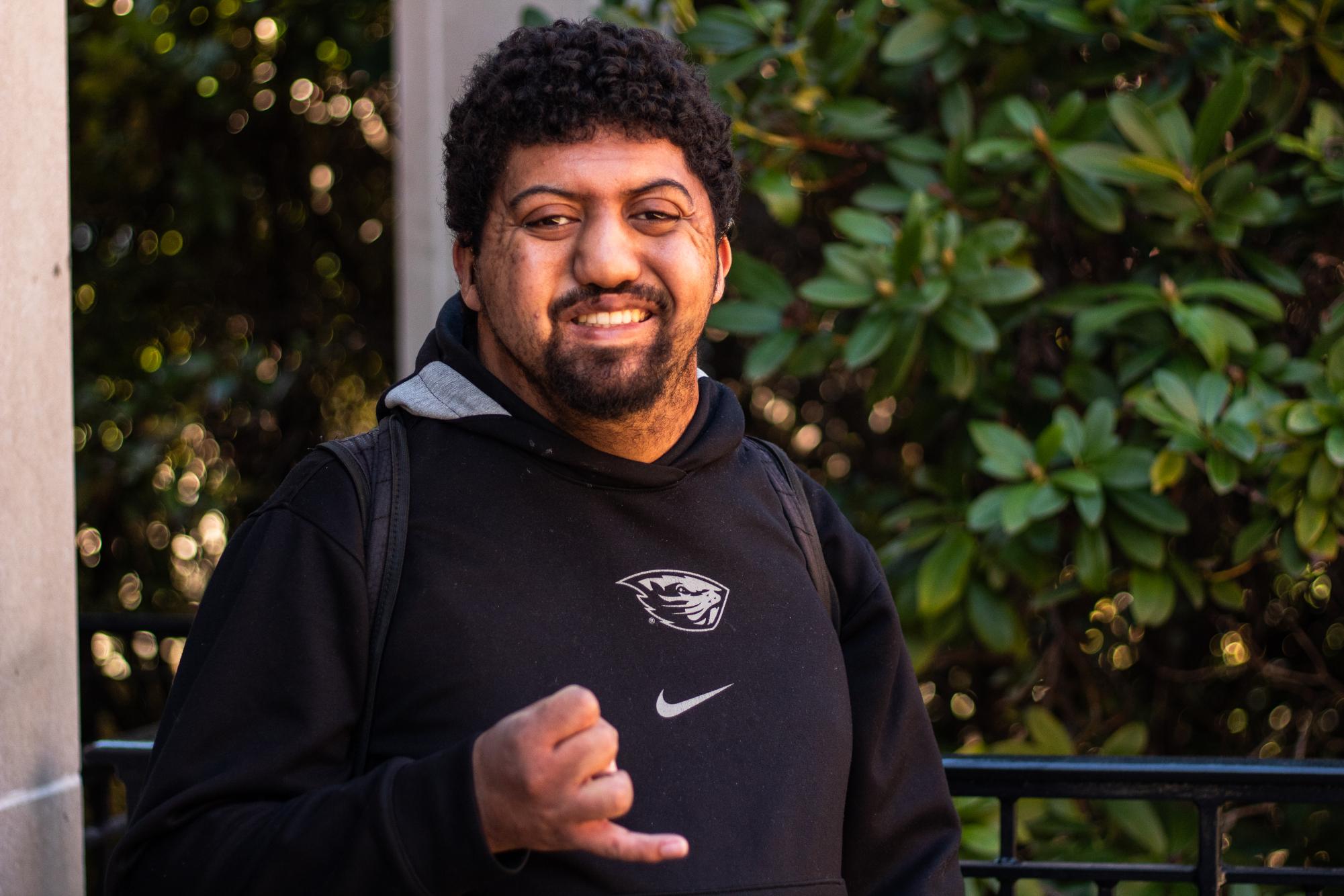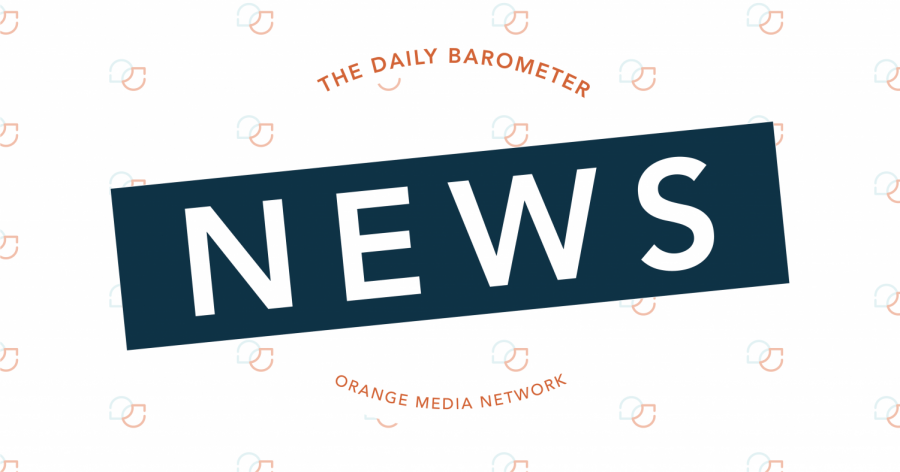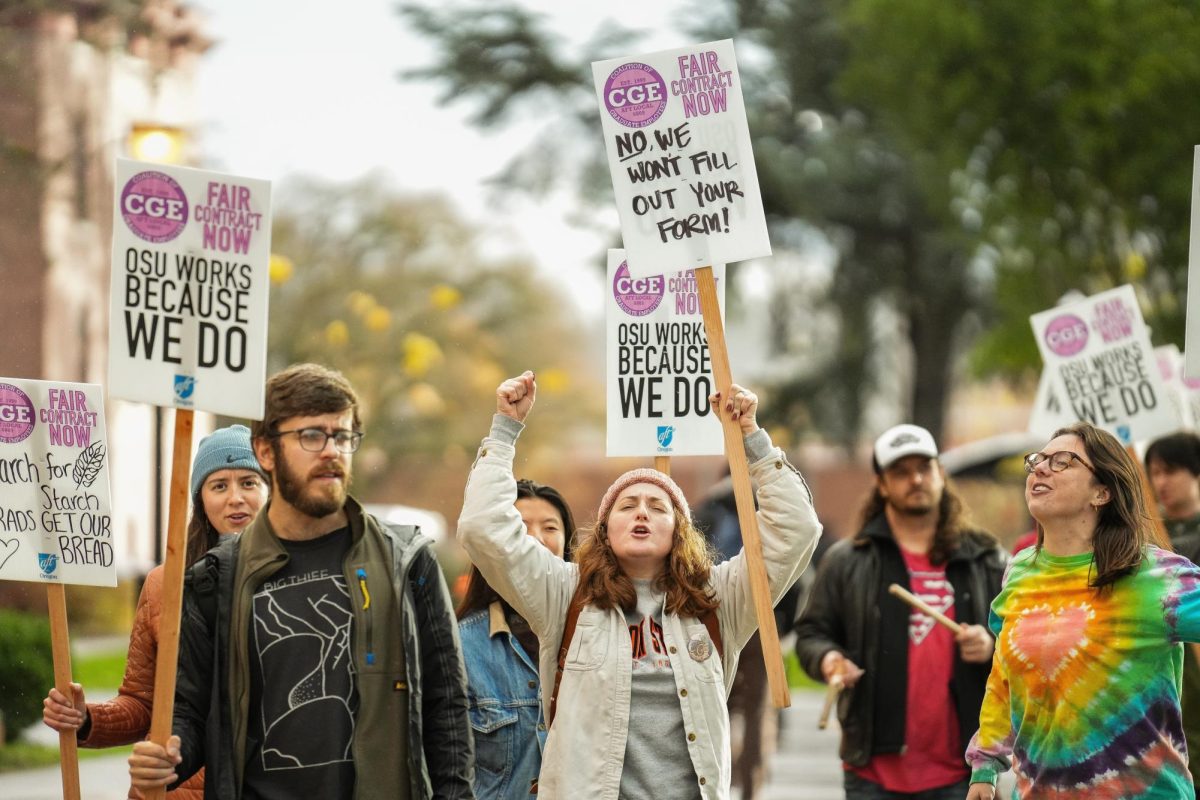“Just because I can’t understand or hear what people are saying, it doesn’t make me dumb”.
These are the words of Ben Stevens, a third-year student majoring in computer science with a focus in cybersecurity. He chose Oregon State University for its engineering programs and rock climbing community.
Going into college, Stevens said he was hopeful the university environment would be more supportive towards Deaf and hard of hearing students than his previous schools, and was shocked by the discrimination that he continued to face when he got to campus.
The Deaf community on the Corvallis campus is made up of thirty-three students according to Barbara Forest-Ball, program manager for OSU Deaf and Hard of Hearing Access Services.
However, students Lillyanna Branam and Jaylen Durham who both transferred to OSU, expressed that it was challenging to make friends and develop a supportive peer network on campus.
“The problem is, OSU is the only university that can handle our STEM major requirements,” said Branam, who is majoring in animal science.
She said this means Deaf and hard of hearing students cannot easily transfer to a university with greater accommodations and they “just have to adapt.”
Jaylen Durham is in his second year of civil engineering and transferred to OSU from Chemeketa Community College. Durham said that although teachers and staff are generally supportive, making friends was more difficult.
Branam expressed frustration at a lack of resources offered to Deaf and hard of hearing students through Disability Access Services, including American Sign Language interpreters.
“We are currently facing a national interpreter shortage, so I hope that will change over the next few years,” Forest-Ball said.
In the meantime, Branam and her mom, a disability justice speaker, are pushing for more accommodations to support current and future Deaf and hard of hearing students at OSU.
Branam is also the current president of the ASL club, which she helped create last fall term in the hopes of providing a safe space for the Deaf and hard of hearing community and an opportunity for students to learn more about ASL and Deaf culture.
Due to busy schedules, low meeting attendance, and a lack of funding, Branam said the club is currently inactive but is hoping to learn from the ASL club at Western Oregon University, which is already well-established.
Since 2012, OSU has offered classes in ASL to students through the School of Language, Culture and Society, said the school’s director, Susan Bernardin. However, due to the lack of access to an in-person instructor and the COVID-19 Pandemic, Bernardin said the plans to expand the program were put on hold and ASL classes are currently limited to e-campus.
Stevens explained that this could limit students who want to learn ASL and emphasized the importance of in-person instruction.
“You can learn (online), but ASL is so much more than just facial and hands. It’s your whole body and the way you carry yourself,” he said.
Stevens added that he understands the challenge of finding an in-person instructor who can live in Corvallis.
“It’s a hard balancing act because ASL is not really something that can be taught by someone who is hearing. It has to be taught by someone who is deaf. And so you have to find someone who is deaf who’s willing to leave somewhere with a larger Deaf community,” said Stevens.
Bernardin said that she hopes ASL classes will be offered in-person in the future.
“It’s an important language for us to offer and make accessible to students at OSU,” Bernardin said.
She added that future course offerings will largely be determined by access to qualified staff, funding and enrollment interest.
Until then, both Branam and Stevens said there are multiple ways students on campus can learn more about ASL and Deaf culture, including YouTube ASL singalongs, books at the library or simply asking someone in the Deaf and hard of hearing community if they would be willing to teach some signs.
“If you are new in the ASL community and you’re like ‘I want to learn ASL but I don’t want to be offensive or butcher the ASL’ just come forward,” Branam said. “If we see (you) signing wrong we’ll let you know and teach you how to find the right way because we are friendly and we love interaction with everybody but we like to be heard.”


















































































































